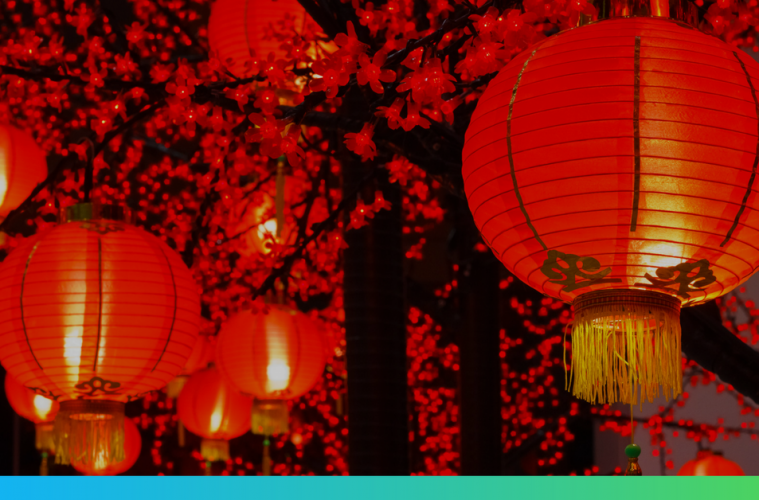When doing business with China, being culturally sensitive with communication and practices are key. Special events and festivities are some of the biggest moments of cultural expression, so being proactive and knowing how to navigate the calendar of Chinese holidays can assist with connecting to your customers and suppliers and for developing better relationships and smart business.
There are also large numbers of Chinese citizens and residents of Chinese ancestry in countries such as China-Hong Kong, China-Taiwan, Singapore, Indonesia and Malaysia while Chinese holidays are also observed in different measures in these countries and also in Japan, Thailand, Vietnam and Korea.
Mindy Xu, World First’s Head of Business Development (Asia market), offers some insight into the significance of the 4 biggest Chinese holidays and what these can mean for your business.
1. Chinese New Year (中国农历新年)
Key dates: 28 January 2017 (the festival goes from 27 January to 2 February) and 16 February 2018 (the festival goes from 15 to 21 February).
Why it is important: Determined by the old Chinese calendar, New Year is the main annual festival in China. It celebrates the turn of the Chinese lunisolar calendar. 2017 is the year of the Rooster while next year, 2018, is the year of the Dog. Chinese New Year is an important time to be with family, with people often travelling long distances to celebrate with one another and spend time together. Streets are filled with brightly coloured papers, carrying the character ‘fu’ for good fortune, and the traditional lion dance is a big feature in public festivities. Firecrackers crackle and bang in a bid to ward off eveil spirits.
For more information on how to leverage this holiday see our 8 tips on connecting with clients during the Chinese New Year.
2. Dragon Boat Festival (端午节)
Key dates: 30 May 2017 (the holiday is from 28 to 30 May) and 18 June 2018 (the holiday is from 16 to 18 June).
Why it is important: The Dragon Boat Festival falls on the 5th day of the 5th month in the Chinese Lunar calendar, which usually happens after the solstice. The celebration seeks rain from the water dragons for the summer crops and commemorates the life of Qu Yuan (340-278 BCE), a public official who drowned himself in defiance of widespread corruption. The legend goes that many boats were sent in search of his body and the rowers dropped parcels of cooked rice into the river so that it would detract fish from eating his body. In this, the tradition of boat racing continues.
What it means for your business: This is a time when the dish zongzi (粽子a rice parcel with meat) is popular. So consider sending this as a gift, as well as giving your well wishes. In China-Hong Kong, this is a public holiday.
3. The God of Wealth Festival (财神节)
Key dates: This festival is celebrated twice a year – on the 5th day of the first month of the Chinese lunar calendar and again on 22 July of the Lunar Calendar. In 2017, the first date is 1 February 2017 and the second is 12 September 2017.
Why it is important: This event celebrates the birthday of the God of Wealth. It is mainly a remembrance day, not so much a celebration. The customs vary between mainland China, China-Hong Kong, China-Macau, China-Taiwan and other communities in South East Asia. In China, one of the traditions involves making larger fruit and traditional offerings to the altar of the God of Wealth in their business.
What it means for your business: It’s a good idea to call your clients/suppliers to send them good wishes. An email will do, no need to pay a visit. Re-tweet or send a message on Weibo to acknowledge the God’s birthday and demonstrate your cultural understanding. It’s business as usual, so you’ll expect to find your colleagues, clients and suppliers still at work.
4. Mid-Autumn Festival (中秋节)
Key dates: This festival is celebrated on the 15th day of the 8th month of the lunar calendar. It falls on the 4 October in 2017 and 24 September in 2018.
Why it is important: The Mid-Autumn Festival is a harvest festival celebrated by ethnic Chinese and Vietnamese people. It celebrates three fundamental concepts – gathering, thanksgiving and praying. It is also associated with moon worship and offerings are made to the well-known deity Chang’e. You would find people burning incense, carrying brightly coloured lanterns, eating mooncakes and performing dragon and lion dances.
What it means for your business: Largely associated with ‘harvest’ and therefore ‘prosperity’, this is a time when businesses wish other businesses well wishes for success.
Send a mooncake (yuebing) 2 or 3 days before the festival, with wishes for a happy day with family. Social media, text or email work, as do old-fashioned cards in the mail and moon cakes to suppliers and clients.
If you’d like to host a larger celebration, organise a party 2 or 3 days before the festival – people prefer to be with family on the day of. The party should be outside, so the full moon is visible.
Understanding key Chinese holidays can assist you to build strong relationships with your business partners and clients based in China, or even in Australia and other countries with a large Chinese community.
For more tips and articles on doing business around the world, follow World First on LinkedIn.
Disclaimer:
These comments are the views and opinions of the author and should not be construed as advice. You should act using your own information and judgement.
While information has been obtained from and is abed upon multiple sources the author believes to be reliable, we do not guarantee its accuracy and it may be incomplete or condensed.
Please consider FX derivatives are high risk, provide volatile returns and do not guarantee profits.
All opinions and estimates constitute the author’s own judgement as of the date of the briefing and are subject to change without notice.


